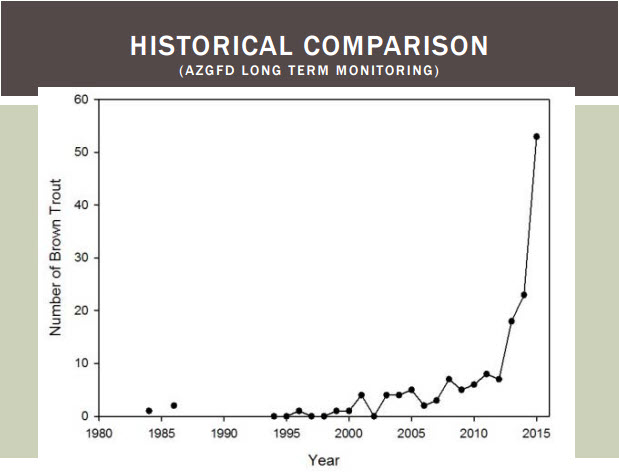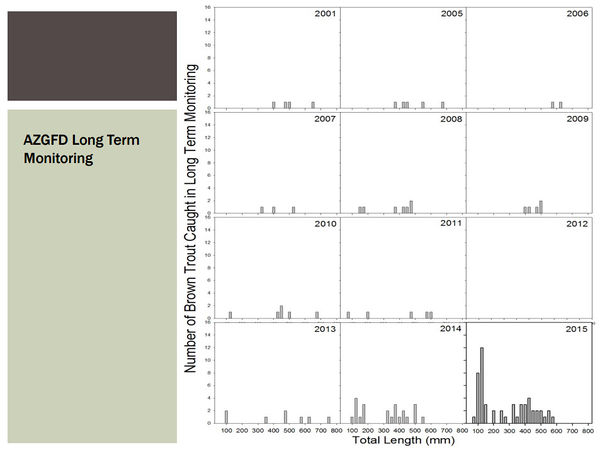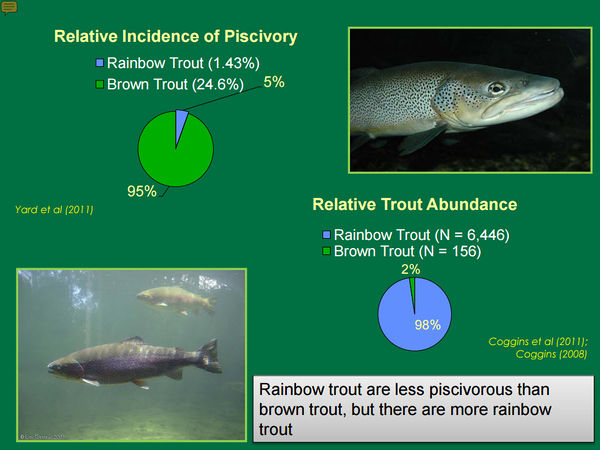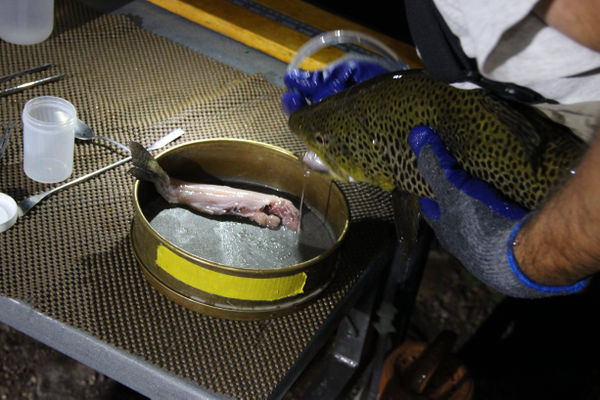Difference between revisions of "Brown Trout"
Cellsworth (Talk | contribs) |
Cellsworth (Talk | contribs) |
||
| Line 55: | Line 55: | ||
[[File:RBT BT piscivory.jpg|center|600px]] | [[File:RBT BT piscivory.jpg|center|600px]] | ||
[https://pubs.er.usgs.gov/publication/70003950 Brown trout are much more likely to eat other fish (piscivory) but since there are many more rainbow trout in the Colorado River between Glen and Marble Canyons, rainbow trout probably eat more fish numerically than brown trout.] An increasing brown trout population could, however, pose a predation problem for both the rainbow trout fishery in Glen Canyon and native fish in Grand Canyon. | [https://pubs.er.usgs.gov/publication/70003950 Brown trout are much more likely to eat other fish (piscivory) but since there are many more rainbow trout in the Colorado River between Glen and Marble Canyons, rainbow trout probably eat more fish numerically than brown trout.] An increasing brown trout population could, however, pose a predation problem for both the rainbow trout fishery in Glen Canyon and native fish in Grand Canyon. | ||
| + | |||
| + | [[File:BrownTrout FGD2016.jpg|center|600px]] | ||
| + | A brown trout collected during 2016 trout monitoring below Flaming Gorge dam that had eaten a 10" stocked rainbow trout. | ||
|} | |} | ||
Revision as of 12:18, 20 October 2016
|
|
Brown TroutBrown trout are native to Europe and were introduce to tributaries in the Grand Canyon in the 1920s. They are capable of withstanding slightly higher temperature than other trout. Unlike most other trout species, brown trout spawn in the late fall. Their spawning behavior, however, is similar to other trout species. Like rainbow trout, young brown trout feed on aquatic and terrestrial insects and invertebrates but brown trout are more apt to switch to eating other fish as they get bigger. The rainbow trout found in Grand Canyon are more likely to eat mostly insects and invertebrates even as adults. Many studies have shown that native fish like humpback chub often have a difficult time persisting with large populations of brown trout.[1] Desired Future Condition for the Lees Ferry Trout FisheryA high quality trout fishery in GCNRA, as further described in the Recreation DFC that does not adversely affect the native aquatic community in GCNP. |
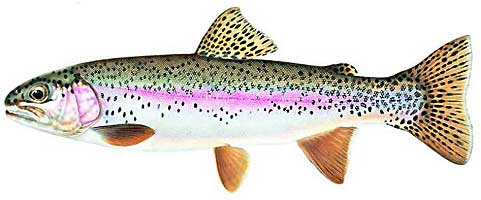 Rainbow Trout |
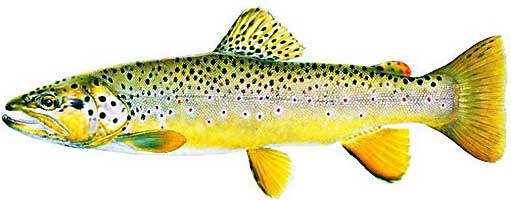 Brown Trout |
|---|
|
|
